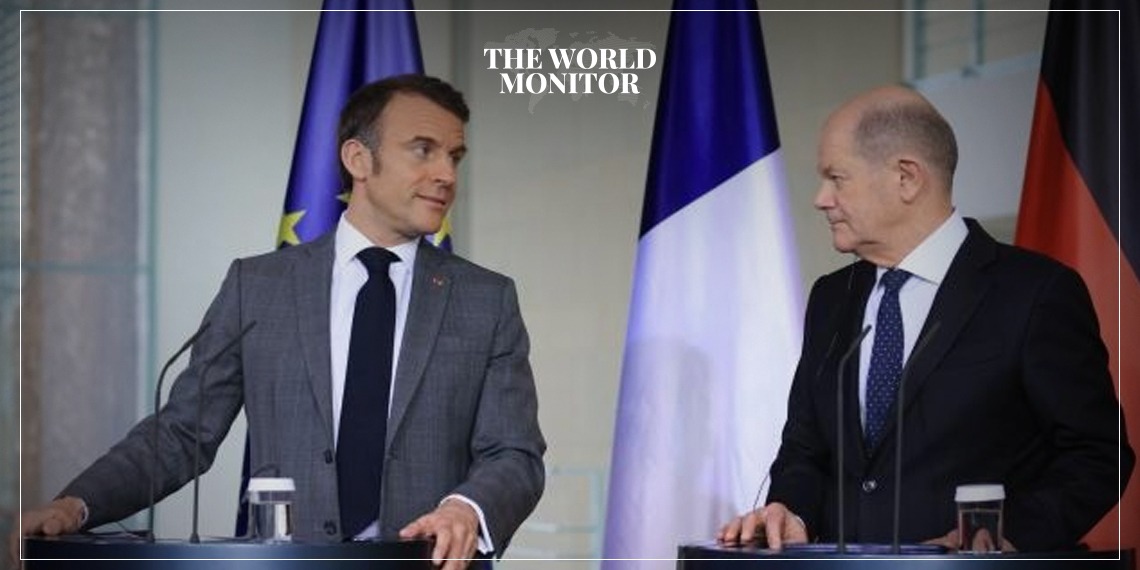Germany and France have agreed to unify their efforts to commence arms production within Ukraine, in an attempt to bolster support for military equipment provided to Kyiv.
German Chancellor Olaf Scholz informed journalists following a meeting with French President Emmanuel Macron and Polish Prime Minister Donald Tusk: “Today in Berlin, we discussed ways to support Ukraine in a more tangible manner. We will expand military equipment production, also in collaboration with partners in Ukraine.”
The three leaders convened during what is known as the “Weimar Triangle” formula to discuss ways to provide assistance more effectively to Kyiv and present a united European front.
Ukrainian forces are facing severe ammunition shortages as they struggle to push back Russian advances, heightening concerns that the collapse of defensive lines could bring Russian forces closer to the capital, Kyiv, once again.
Macron has particularly adopted a strong stance regarding intensifying support for Ukraine, warning in a television interview two days ago that the European Union faces a threat of a Russian invasion unless Putin’s forces are defeated in Ukraine.
Following the meeting, Macron stated: “I would like to thank the German Chancellor, who bears special responsibility for joint industrial production choices on Ukrainian soil.”
Earlier this month, French Defense Minister Sébastien Lecornu indicated that KNDS, a company specializing in Franco-German main battle tank manufacturing, would be among the French companies establishing partnerships to produce equipment in Ukraine.
Polish Prime Minister Tusk said: “We all agreed that assistance to Ukraine should be immediate and as intensive as possible. We want to spend our money and offer assistance in every possible way as soon as possible to improve the situation in Ukraine.”
Macron stirred tensions with allies two weeks ago by suggesting that nothing should be ruled out when asked about sending military forces to Ukrainian territory. He added that strategic ambiguity is necessary to deter Moscow.
Scholz and the White House quickly expressed their rejection of this option, while Putin warned NATO of the risks of a nuclear conflict if forces were sent to assist Ukraine.
Despite this, Scholz faced criticism for refusing to agree to Kyiv’s request to provide it with long-range Taurus cruise missiles.
Instead, the German Chancellor highlighted that Germany is one of the most generous supporters of Ukraine, pledging to provide nearly $30 billion in military aid.
European countries have struggled to remain unified, with disagreements arising over the type of equipment to be provided and whether to consider sending military forces to Ukraine.
Scholz’s spokesperson, Steven Hipster, rejected suggestions that the Chancellor and Macron do not appreciate each other, a claim some critics argue hampers progress in areas including supporting Ukraine and joint European defense.
Hipster stated in a regular press conference that the two leaders share a “completely good relationship,” even if they disagree on certain issues such as deploying forces to combat the war with Russia, a possibility Macron refused to rule out.






